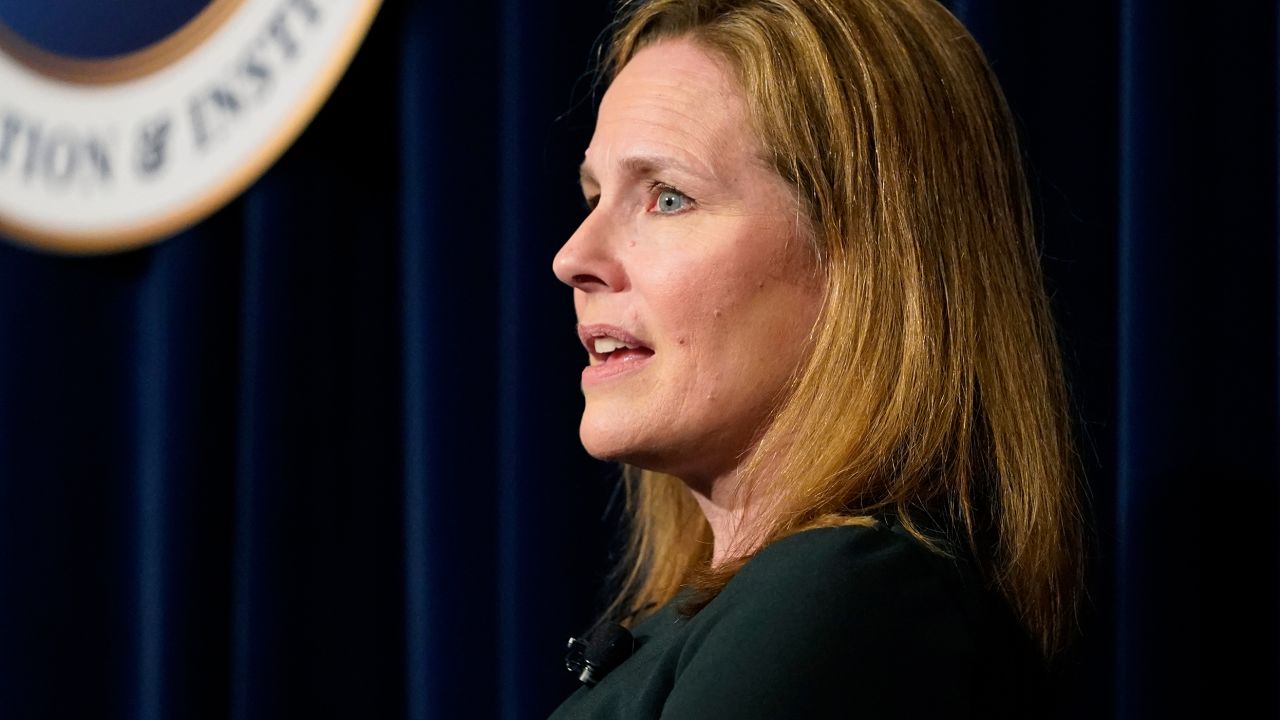(Trends Wide) — Supreme Court Judge Amy Coney Barrett on Thursday rejected a challenge to the Biden administration’s student loan forgiveness program, refusing to accept an appeal filed by a group of Wisconsin taxpayers.
The ruling, for the moment, is a victory for President Joe Biden, although there are other pending challenges that are reaching the high court.

US Supreme Court Justice Amy Coney Barrett has rejected an appeal against the Biden administration’s student loan forgiveness program. Credit: Damian Dovarganes/AP/FILE
Student loan forgiveness, up to $20,000 per borrower, could begin as early as Sunday.
The appeal in question was considered an uphill battle because lower courts had ruled that the group, the Brown County Taxpayers Association, did not have the legal right or “standing” to bring the appeal. Under normal circumstances, taxpayers do not have a general right to sue the government over the use of taxpayer funds.
Barrett acted alone because she has jurisdiction over the lower court that decided the case. She refused to refer the matter to the full court. Her denial appeared as a single sentence in the court file.
Lots of legal challenges
There are other lower court challenges that could be scrutinized further, notably one brought by six GOP-led states.
The plaintiffs in that case have asked a federal judge to put the cancellation of the student loans on hold until he makes a final ruling in the case. The judge is expected to issue an order on that request soon, though the losing party is expected to immediately appeal. That would send the case to the 8th Circuit Court of Appeals, where it is likely to face a panel of conservative judges.
The Biden administration is also facing lawsuits from Arizona Attorney General Mark Brnovich and conservative groups such as the Network of Job Creators Foundation and the Cato Institute.
Many of the legal challenges claim that the Biden administration does not have the legal authority to broadly write off student loan debt.
Government lawyers argue that Congress gave the education secretary the power to cancel the debt in a 2003 law known as the HEROES Act.
The Biden Government Program
The student loan forgiveness program, first announced in August, aims to offer debt relief to millions of borrowers before federal student loan payments resume in January, after a nearly three-year hiatus related to the pandemic.
Although the request was officially opened on Monday, the Biden administration has agreed in court documents to delay the cancellation of any debt until October 23. Once the process begins, most eligible borrowers are expected to receive debt relief within weeks.
Under Biden’s plan, eligible individual borrowers who earned less than $125,000 in 2020 or 2021 and married couples or heads of households who earned less than $250,000 annually in those years will have up to $10,000 of their debt forgiven. federal student loan debt.
If a qualified borrower also received a Federal Pell Grant while enrolled in college, the individual is eligible for up to $20,000 of debt forgiveness.





